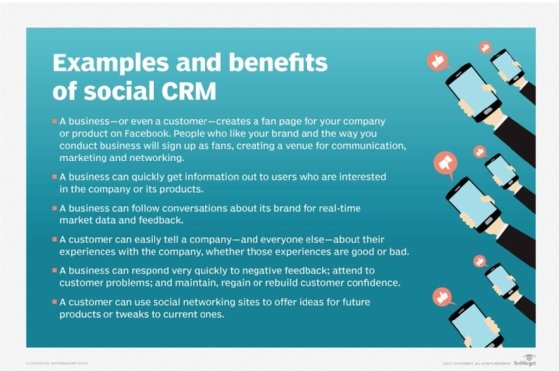The Role of Social in Customer Relationship Management (SCRM)
by Admin
Posted on 06-07-2023 03:42 PM

When it comes to the art of managing customer relationships, social media plays a pivotal role. That’s because public-facing social media is now one of the most critical aspects of how people perceive a brand. Not only are popular social platforms many people’s first port of call for finding out about a company, but you can also earn digital applause from social media users, creating a free, organic source of publicity when done well. Free to use image sourced from pexels
social crm thus encompasses both elements of marketing and public relations. It is an approach to customer relationship management that recognizes the centrality of social media to contemporary brand perception and designs business strategies around this.

http://socialmediamarketingzm.s3-website.us-east-2.amazonaws.com/digital-marketing-/social-listening-social-media-listening.html
Strategic social media plays a crucial role in contemporary customer relationship management (crm); however, the best practices for social crm are still being discovered and established. The ever-changing nature of social media challenges the ability to establish benchmarks; nonetheless, this article captures and shares actions, insights, and experiences of using social media for crm. This case study examines how an academic library at a mid-size american university located in northeast florida uses social media to engage in social listening and to enhance crm. In particular, the social listening practices of this library are highlighted in relation to how they influence and potentially improve crm.
In this era of new technologies, social media is a must for an organization to remain competitive on the market. Social media is a tool to manage relationships with customers and keep them closer. This paper aims to analyze how social media supports the development of customer relationship management. It is examined the significant role of social media, the use and the rise of social networks. The use of social media marketing represents a strong factor in developing a crm strategy. Crm considers the client the center of a business and orientates the marketing policy in this direction. Based on case studies and questionnaires, this article analyzes the necessity of transition from traditional crm to social crm.
The purpose of this paper is to present the augment of the authors, who are ibm consultants, that companies need to meld social media programs with customer relationship management (crm). This new paradigm – social crm – recognizes that instead of just managing customers, the role of the business is to facilitate collaborative social experiences and dialogue that customers value.
Social Sharing and QUUU Promote
Social media is essential to everyday life. On average, we spend fifty minutes per day scrolling through news feeds, posting pictures, liking comments and sharing our experiences. As more our attention shifts to social media, companies are doubling down on their investment into social media customer service as they look to use this channel to grow their business. In the past, this meant creating a brand page and using social media to promote their business.
 But, that’s no longer the case, as companies are increasingly using social media to handle customer service requests. Instead of being a communication platform, social media has become a customer experience platform.
But, that’s no longer the case, as companies are increasingly using social media to handle customer service requests. Instead of being a communication platform, social media has become a customer experience platform.
What is online advocacy?
As social media began impacting customer relationships, four key principles have emerged: collaboration: brands and customers must collaborate to solve problems. Transparency: brands must stay transparent in their policies and communications. Advocacy: brand advocates in the form of happy customers can make word-of-mouth recommendations online to boost your brand’s popularity. Mutual value and co-creation: brands and customers both benefit from the heightened customer attention social crm delivers. Social crm is about listening to the customer, processing the situation, answering any questions or concerns, and arriving at a social customer service resolution. Social crm delivers a way to build mutually beneficial relationships between brands and their customers.